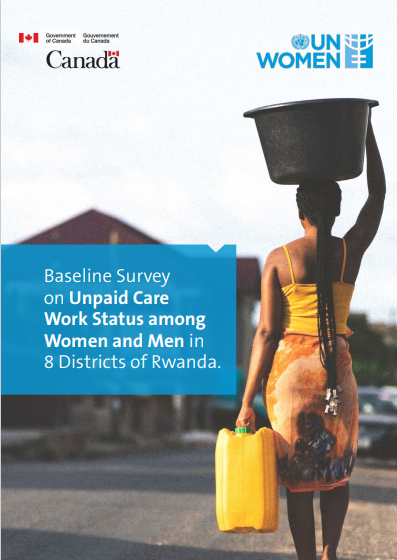
Baseline Survey on Unpaid Care Work Status among Women and Men in 8 Districts of Rwanda

Research shows that in low-resource settings such as sub-Saharan Africa, women and girls in rural areas carry a much heavier burden of care work than their male counterparts in urban areas that have access to time- and labor-saving technology and basic services. In Rwanda, until very recently, there has been limited research on the correlation between women’s unpaid care work, time use and economic wellbeing.
To better understand the current status of women’s unpaid care status, UN Women Rwanda conducted a baseline study of unpaid care and domestic work among men and women’s in 8 districts namely: Gasabo, Nyarugenge, Muhanga, Musanze, Rubavu, Nyaruguru, Ngoma, and Kirehe. This aim of this baseline was to collect data to help inform UN Women’s transformative approaches to recognize, reduce and redistribute unpaid care work in women’s economic empowerment programming program (‘3R Programme’).